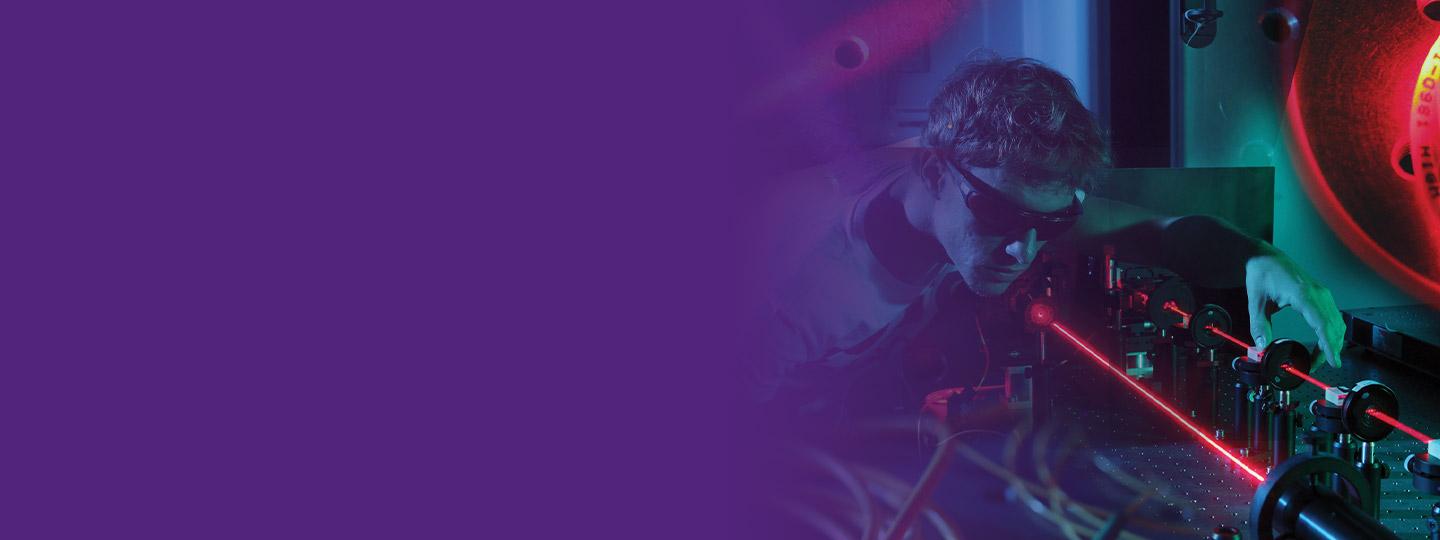
Quantum and Advanced Technologies PhD top-up
This scholarship is closed.
- Enrolment status
- Current UQ student
- Student type
- Domestic, International
- Study level
- Postgraduate research (HDR)
- Study area
- Science and mathematics
- Scholarship focus
- Aboriginal and/or Torres Strait Islander, Academic excellence, Diversity, Rural or remote
- Funding type
- Financial award, Top-up, Travel
- Scholarship value
- $15,000/annum, plus $5 000/annum translation/development allowance for up to 3 years and $5,000 travel allowance
- Scholarship duration
- Up to 3.5 years with the possibility of 1 extension in line with UQ and RTP Scholarship Policy
- Number awarded
- May vary
- Applications open
- 16 April 2025
- Applications close
- 14 May 2025
About this scholarship
Established by the Department of Environment, Science and Innovation (DESI) the Quantum and Advanced Technologies Talent Building Program aims to build the talent pipeline for the quantum and advanced technologies ecosystem in Queensland.
The objectives of the program are to:
- Contribute to and strengthen participation of students in quantum and advanced technologies, particularly those who identify as women, are non-binary, are of Aboriginal and Torres Strait Islander descent, or are from regional areas
- Train a new generation of PhD students into excellent quantum researchers capable of being pioneers in this emerging discipline
- Build technology capability and skills across a range of fields
- Improve translation and commercialisation skills
- Foster collaboration across academia and industry.
Eligibility
You are eligible if you are enrolled in a PhD and hold a base living stipend, and are conducting research in at least one of the following areas:
- Quantum
- Compound semi-conductors
- Superconductors
- Photonics
- Micro-electromechanical systems
Competitive applications from Students that identify as women, are of Aboriginal and Torres Strait Islander descent, or who identify as being from a regional, rural or remote background, will be prioritised.
You are not eligible for this scholarship if you are in your last year of your PhD program.
How to apply
Please submit your online application by 11:59pm (AEST), Wednesday 14 May 2025.
Late and incomplete applications will not be considered.
Rules
This scholarship adheres to the terms and conditions outlined in the UQ Research Scholarships Policy and Procedure
Note that periods of study already undertaken towards the degree prior to the commencement of the Scholarship will be deducted from the maximum duration of the Scholarship.
Successful Students must comply with the following criteria:
- Must be enrolled in PhD with a primary PhD scholarship, for example a Research Training Program (RTP) or equivalent scholarship, and conducting research in at least one of the following areas:
- Quantum
- Compound semi-conductors
- Superconductors
- Photonics
- Micro-electromechanical systems.
- The award is not transferable in cases where the student cannot complete the PhD
- Students must retain their primary PhD scholarship funding for the duration of the PhD studies
- Unless they have received the top-up funding in previous years, Students in the last 12 months of their PhD tenure cannot receive the top-up funding for the first time
- The student must comply with the eligibility requirement associated with the research area as follows:
- If an Award holder changes to a course that is not aligned with the eligibility criteria for the scholarship, the scholar will become ineligible for their Award, starting from the semester in which the change of course is made
- If an Award holder discontinues the course(s) that make them eligible during a semester, they will not be eligible for Award funding for that semester. If a Student’s course of study changes but still meets the scholarship eligibility criteria, they will be required to provide written evidence of continuing eligibility, to continue to receive Award payments. The maximum four years of Award funding will not be extended.
The Translation and Development allowance can cover training and career development activities in Australia with a focus on building skills in research commercialisation. Examples of activities that will be supported include:
- Short courses
- Workshops
- Conferences
- Networking and collaborations
The travel allowance can be used for expenses associated with travel to attend conferences or visit research institution or industry partner, including accommodation, meals and incidental costs related to travel.
